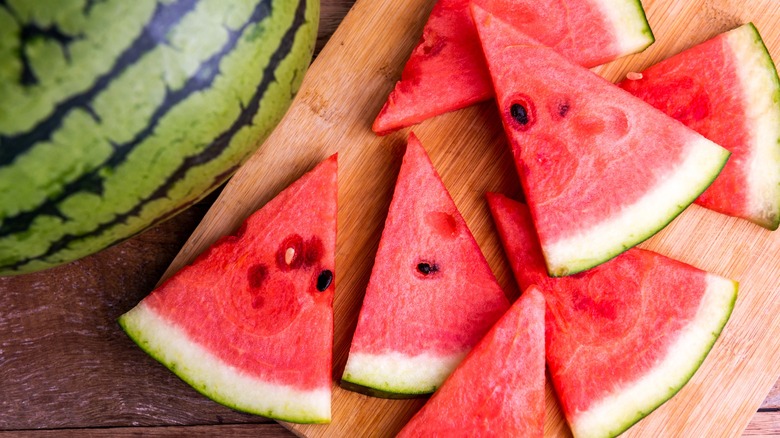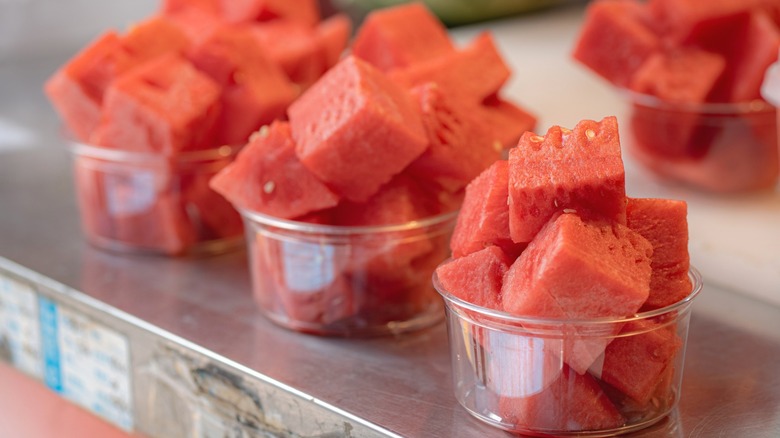It Turns Out You Can Eat Too Much Watermelon
Grilled burgers and hot dogs are quintessential BBQ fare, but nothing screams "cookout" quite like a sweet watermelon. The fruity aroma alone transports us to the nostalgic, carefree days of childhood, spitting out the seeds while relishing a fresh slice as adults congregated around the grill. Still, just like anything else in life, you don't want to overdo it. As tempting as it is to fill up on the hydrating fruit during watermelon season, it is possible to eat too much.
Watermelon is a great way to get a tasty boost of hydration in the dog days of summer, being roughly 91% water, but it also boasts a significant amount of fructose. When too much of the natural sugar is consumed, it can cause stomach issues such as diarrhea and nausea. If you want to avoid making emergency trips to the restroom while participating in all the outdoor activities that watermelon generally pops up around, it's best to eat it in moderation.
Another reason to enjoy watermelon with some restraint is that, in rare cases, eating too much can actually change the pigment of the skin. The chemical that gives the fruit its signature ruby red color, lycopene, has been known to gather on the exterior layers of people's skin when ingested in large doses. The condition, known as lycopenemia, isn't considered detrimental and will dissipate by simply avoiding foods high in lycopene. Still, if you want to dodge sporting an orange hue, be generous with the sunscreen and keep your watermelon consumption in check.
How much watermelon is too much?
Unfortunately, the amount of watermelon that could instigate problems isn't set in stone. The USDA recommends that individuals eat 2 cups of fruit daily, so if watermelon is the only fruit you are consuming, that's a reasonable benchmark to shoot for. Still, everyone is different. If you notice that just 2 cups makes your stomach churn, it is probably a good idea to cut back a touch.
It is worth noting that while there are verified side effects that can occur from eating too much of the juicy fruit, there are also a couple of watermelon myths you have to stop believing. One is associated with the fruit's high potassium content. Some have asserted that overeating the fruit can cause hyperkalemia, which can lower one's heart rate and blood pressure. This claim doesn't hold water because it would require ingesting an entire watermelon to potentially consume more than the recommended daily amount of potassium. There is also a myth that alleges the fruit's high water content causes overhydration, but there is no verified evidence this can occur.
Given the average size of a watermelon, it may be tempting to try to munch on as much as possible so it doesn't go to waste. Yet, after it has been cut, it lasts for about five days in the fridge, so don't feel like it has to be eaten right away. You can also freeze watermelon for a hydrating snack in the future. It will lose its signature crisp texture, but the refreshing taste will still be present — and you won't have to worry about making a beeline to the restroom after eating too much.

